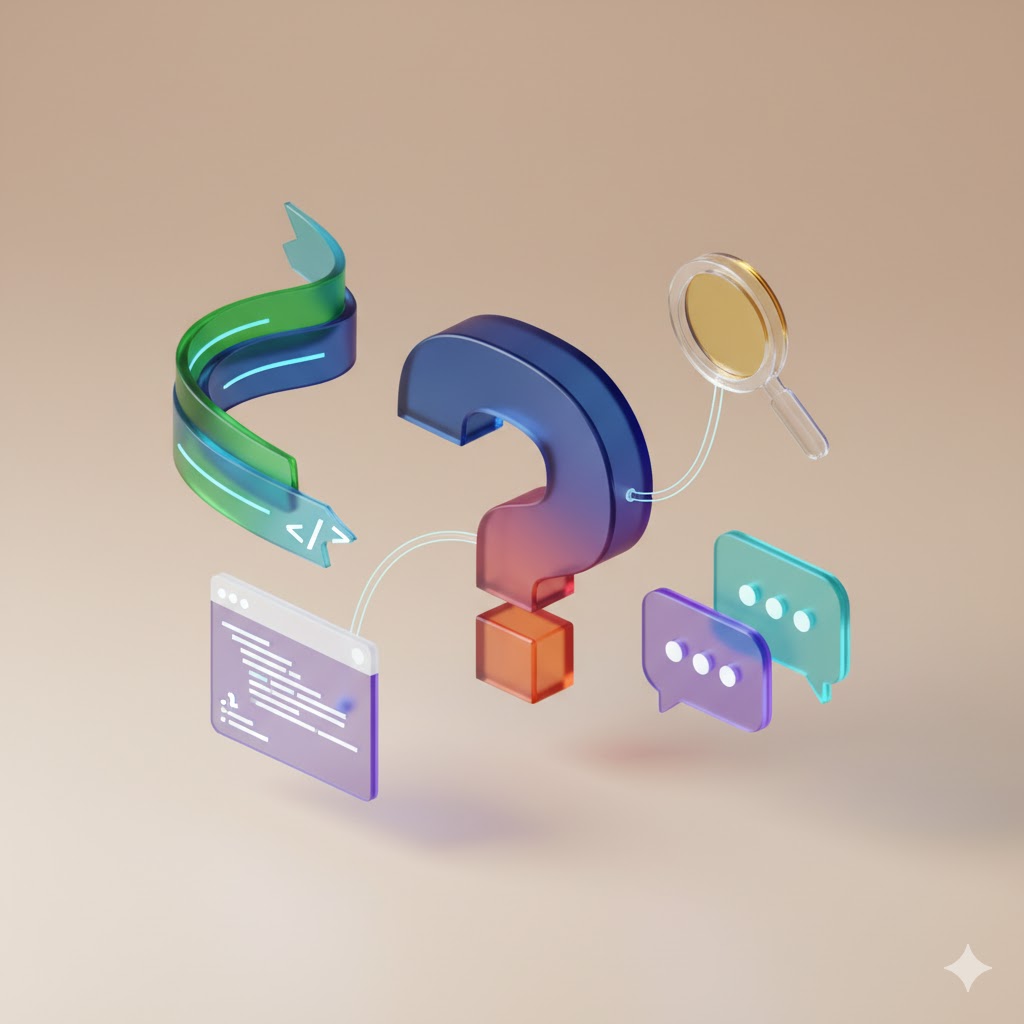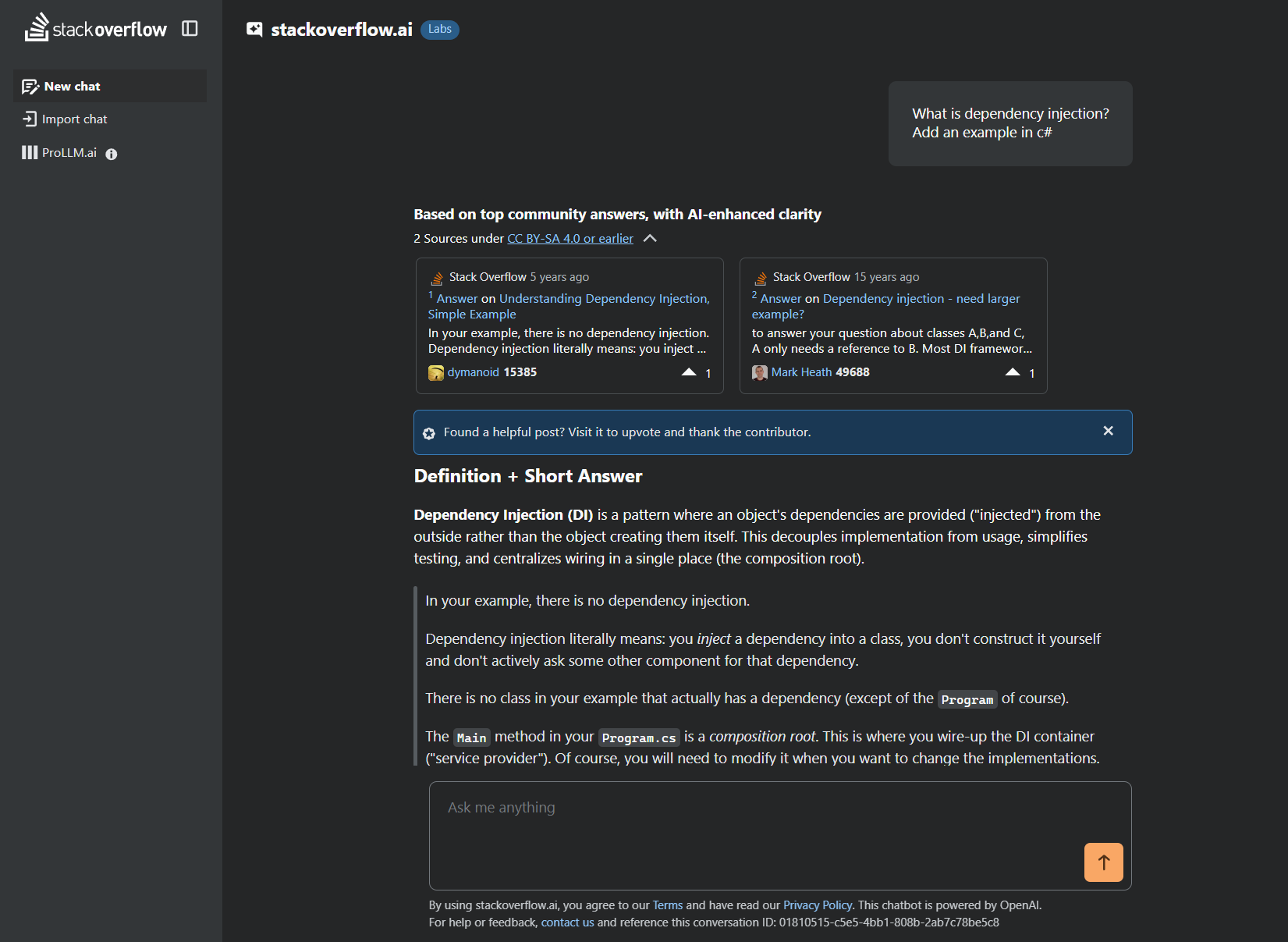
Stack Overflow in 2025: Not Dead, Just Transformed

"AI killed Stack Overflow" – I see this headline everywhere. But let's be honest: that's nonsense.
Stack Overflow isn't dead. It's still used by millions daily. The best answers for many specialized questions are still there. What we're seeing isn't death – it's evolution.
What Did AI Actually Change?
Yes, AI chatbots changed how we search for answers. When I have a quick, general question, I don't go to Stack Overflow anymore – I go to ChatGPT or Claude.
"How do I convert a string to integer in Python?" – an AI answers this in seconds.
But when I have a complex, context-dependent problem? When I'm wrestling with a specific library's edge case? When I need deep technical details?
Then I still go to Stack Overflow.
Where Valuable Content Lives
Stack Overflow's real value isn't in simple Q&A. Its value lies in the deep technical knowledge accumulated over years.
A Reddit user describes it perfectly: "Recently I had a pytest debugging issue in VS Code. Neither ChatGPT nor Gemini Pro could solve it. Using Google, I finally found the exact solution on Stack Overflow."
AI can't replace this. AI gives general answers, but on Stack Overflow, real people gave real solutions to real problems.
The Real Problems
Of course, not everything is perfect. The Reddit thread raised some valid criticisms:
Outdated answers: A 10-year-old jQuery answer is irrelevant today. Software development changes so fast that what was written 5 years ago might not work now.
Excessive moderation: Yes, there are cases where questions get closed as "duplicates" even though the old answer no longer works. It's frustrating.
The "RTFM" culture: Telling someone to "read the docs" doesn't help. Especially when the documentation is incomplete or hard to understand.
Why AI Works Psychologically
Another user puts it well:
"The AI doesn't say 'you shouldn't do it this way'. The AI just answers. It might be too nice, but at least it's not condescending."
This is psychological safety. With AI, I don't fear:
- Asking a "stupid" question
- Getting downvoted
- Being treated condescendingly
And this matters. Especially for beginners or those learning in new areas.
Stack Overflow's Response: OverflowAI
Stack Overflow didn't watch this change with folded arms. The OverflowAI platform brings three key features:
VS Code integration: Search directly from your IDE without losing your flow state. This is huge value.
AI-powered search: AI understands your question's intent and summarizes relevant Stack Overflow answers with sources.
Slack/Teams integration: Automatic answers based on company knowledge base, right in your chat platform.
The Coexistence Model
The future isn't "AI vs Stack Overflow". The future is AI + Stack Overflow.
AI is great for quick answers. Stack Overflow is essential for deep, specific problems. OverflowAI is the connecting bridge between the two.
A user writes it perfectly: "Stack Overflow still saves me sometimes when even the newest LLMs fall short. The platform's value is in specific, contextual knowledge."
What Actually Changed?
It's not that Stack Overflow died. What changed is:
AI took over simple, repetitive questions. This reduces Stack Overflow's traffic, but not its value.
Stack Overflow's value shifted to deep technical knowledge. Those answers that AI can't generate because they're based on specific experience.
User experience hasn't kept pace. Moderation culture and outdated content management remain issues.
The Lesson
Stack Overflow isn't dead. But it needs to adapt.
OverflowAI is a good direction. But the platform's real value is in preserving and maintaining the deep technical knowledge accumulated over years – while improving user experience.
AI isn't the enemy. AI is a tool that can help Stack Overflow become even more relevant.
And this is the lesson for every platform: innovation isn't about resisting change, but evolving with it.